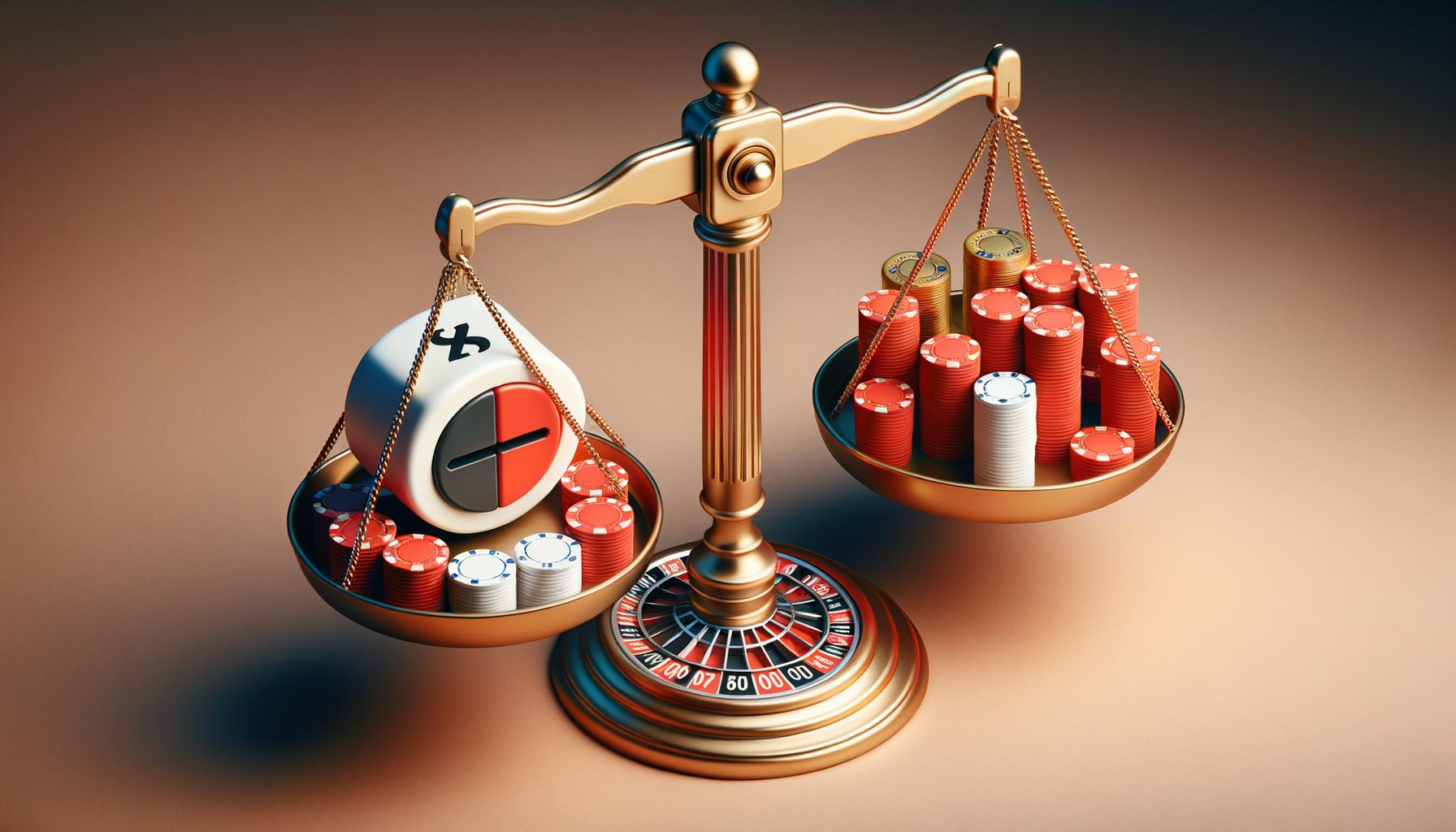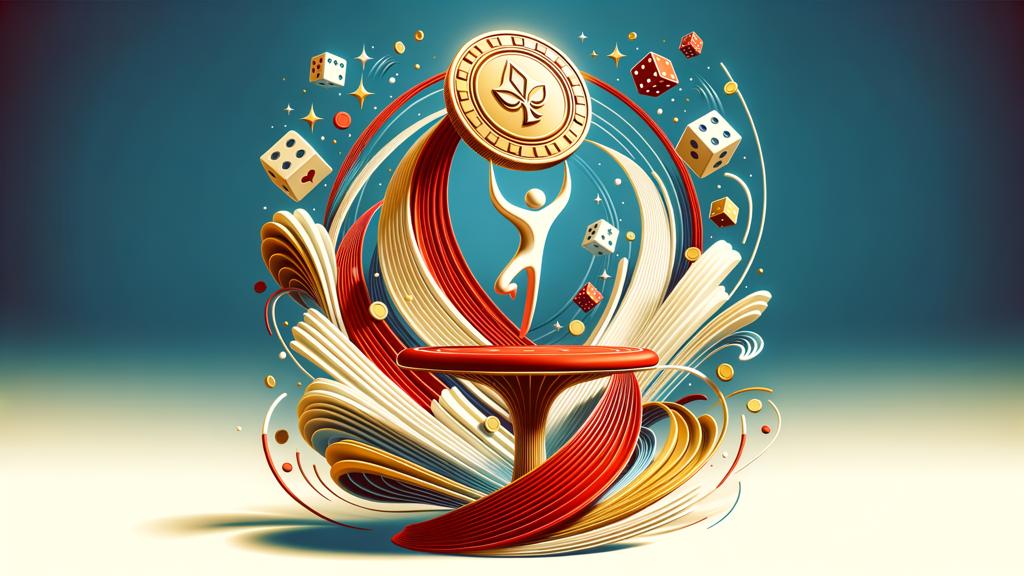
In this guide, you'll discover how to:
- Understand the psychology behind gambling addiction
- Set SMART goals to reduce or eliminate gambling
- Track progress effectively
- Stay motivated even during setbacks
- Use technology and support systems to your advantage
- Learn from real success stories and apply proven techniques
- Build a future free from gambling addiction
Why Setting Goals is the First Step to Gambling Recovery
Problem gambling affects over 10 million people in the United States alone, and the number continues to rise globally. It doesn’t just impact finances—it influences relationships, careers, and mental health. One of the most effective strategies to combat gambling addiction is through goal setting. It might sound simple, but structured, strategic goals can mean the difference between relapse and recovery.
Let’s dive into the science and strategy behind using goals to regain your freedom.
1. Understanding Gambling Addiction: The Psychology Behind the Urge
Before setting goals, it’s essential to understand the mechanics of gambling addiction. Gambling activates the brain’s reward system in much the same way drugs and alcohol do. Dopamine—a neurotransmitter linked to pleasure—is released in large amounts, reinforcing the behavior.
Fact: Studies show that gambling can increase dopamine levels by up to 10 times the normal amount.
Risk Factors Include:
- Underlying mental health issues (depression, anxiety)
- Access to online or physical gambling platforms
- Peer influence
- Personality traits (impulsivity, competitiveness)
Types of Gambling Addiction:
- Action gamblers: Often thrill-seekers who gamble to feel powerful
- Escape gamblers: Use gambling to avoid emotional pain or stress
Understanding these triggers helps in crafting more personalized and effective goals.
2. The Power of Goal Setting in Behavior Change
Goal setting is more than a motivational tool—it's a psychological strategy. According to Locke and Latham’s Goal Setting Theory, specific and challenging goals enhance performance more than vague or easy ones.
When you're working toward a clear outcome, your mind is more focused, your actions more purposeful.
Types of Goals That Work:
- Outcome goals: “I will stop gambling within 3 months.”
- Process goals: “I will attend therapy twice a week.”
- Behavioral goals: “I will track every urge to gamble in a journal.”
Setting both short-term and long-term goals can create structure in an otherwise chaotic behavioral pattern. Think of goals as your roadmap—they keep you oriented, even when you hit bumps in the road.
Why Most Goals Fail:
- Lack of specificity
- Unrealistic expectations
- No accountability
- Ignoring emotional and psychological triggers
Avoid these mistakes by making sure your goals are designed for success—not just wishful thinking.

3. Setting SMART Goals to Control Gambling
SMART is an acronym that stands for Specific, Measurable, Achievable, Relevant, and Time-bound. This method transforms vague aspirations into actionable plans.
Example SMART Goal Table:
| SMART Component | Example |
|---|---|
| Specific | I want to reduce gambling to 0 times per week |
| Measurable | I will record each instance of gambling |
| Achievable | I will replace gambling with a weekly hobby |
| Relevant | I want to save money and reduce stress |
| Time-bound | I will achieve this within 8 weeks |
Tips for Creating SMART Goals:
- Break large goals into micro-goals
- Write them down and review daily
- Share with a trusted friend or therapist
- Regularly assess and adapt your goals
SMART Goal Examples by Stage:
| Stage | Goal |
|---|---|
| Early Recovery | Limit gambling to weekends only for 2 weeks |
| Mid-Recovery | Join a weekly support group within 10 days |
| Advanced Recovery | Save $500 over 3 months from not gambling |
Using SMART goals gives your recovery structure, making the process more tangible and less overwhelming.
4. Tools and Techniques to Stay on Track
Staying consistent is one of the biggest challenges. Here are practical tools and strategies to help you stay on track:
a. Journaling and Habit Tracking Keeping a journal helps you spot patterns and triggers. Write down:
- When the urge hit
- What you were feeling
- What you did instead of gambling
Recommended Habit Tracking Apps:
- Streaks
- Habitica
- Daylio
b. Technology Support
- Self-exclusion apps like Gamban, BetBlocker, or GamStop
- Financial control tools like YNAB (You Need a Budget) or Mint
c. Accountability Partnerships Ask a trusted friend, therapist, or sponsor to check in weekly. Knowing someone else is aware of your goals increases your chances of success by up to 65%.
d. Professional Help Therapists trained in CBT (Cognitive Behavioral Therapy) and Motivational Interviewing can help reshape thought patterns. You can also explore group therapy or 12-step programs like Gamblers Anonymous.
e. Alternative Activities Replace gambling with:
- Fitness (e.g., gym, yoga, cycling)
- Creative hobbies (e.g., drawing, music)
- Social clubs or volunteering
List of Hobbies to Replace Gambling:
- Running or walking clubs
- Cooking classes
- Gardening
- Learning a language
- Joining a book club

5. Real-Life Success Stories: How Goals Changed Lives
Case Study 1: Jason, 34 Jason struggled with online sports betting for years. Through SMART goal planning, he:
- Set a goal to stop betting by his birthday (3 months away)
- Tracked every urge and replaced the habit with cycling
- Joined a local support group
Outcome: He’s been gambling-free for 18 months.
Case Study 2: Maria, 52 A slot machine addict for over a decade, Maria. At first, I tried to switch to platforms with demo versions of slots, where the game is not for real money, but it did not help.
- Used a gambling diary to record triggers
- Used the “5-minute rule” to delay gambling urges
- Made weekly savings goals instead of gambling goals
Outcome: She paid off over $10,000 in debt within a year.
Case Study 3: Anthony, 27 Anthony got into crypto and online casinos during the pandemic. He:
- Installed blocking software on all devices
- Set a goal to take up martial arts to manage stress
- Created a vision board of life goals without gambling
Outcome: Anthony now teaches kickboxing and mentors others in recovery.
6. Overcoming Setbacks: What to Do When You Slip
Relapse is often part of recovery—not the end of it. The key is preparation.
Common Setbacks:
- Emotional stress
- Overconfidence after a period of success
- Unexpected financial windfall
How to Handle Them:
- Revisit your goals and adjust as needed
- Speak with your support network immediately
- Remind yourself: One slip does not equal failure
Recovery Maintenance Table:
| Trigger | Coping Strategy |
|---|---|
| Stress | Deep breathing + walk |
| Boredom | Call a friend or start a hobby |
| Loneliness | Attend a support meeting |
| Overconfidence | Re-read your recovery journal |
| Guilt after relapse | Write a forgiveness letter to yourself |
Bonus Tip: Create a “Recovery Toolkit” – a folder or bag that includes:
- Your written goals
- Support contact list
- Journal
- Relaxation tools (fidget toys, lavender oil, etc.)
7. Designing Your Long-Term Strategy: Future-Proofing Your Recovery
Short-term success is just the beginning. Long-term recovery requires ongoing attention.
Long-Term Goal Ideas:
- Become a peer mentor in a gambling recovery group
- Reach 1, 2, or 5 years gambling-free
- Help others by sharing your story
- Build an emergency savings fund
Annual Check-In Checklist:
- Have my gambling urges decreased?
- Are my goals still relevant?
- Am I financially healthier than before?
- Do I have the right support system in place?
Table: Monthly Self-Check-In Format
| Question | Yes/No | Notes |
|---|---|---|
| Did I gamble this month? | ||
| Did I track my urges? | ||
| Did I use my coping strategies? | ||
| Did I achieve at least one goal? |
Conclusion: Taking Back Control Through Intentional Living
Gambling doesn’t have to control your life. By setting goals, you’re not just managing a habit—you’re reclaiming your future. From SMART planning to tech tools and community support, every step you take is a move toward freedom.
Remember, recovery is a journey, not a race. Whether you're just starting or returning after a setback, the key is to keep going.
Your next step? Set your first small goal today. Even something as simple as writing down why you want to stop gambling can shift your momentum.
Stay strong. Stay focused. You’ve got this.
If you're ready to take the next step, consider joining our community or downloading our free recovery planner to help structure your goals and stay accountable.

